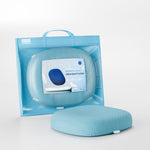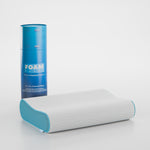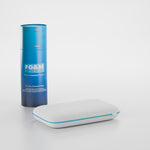17 Proven Methods to Sleep Better at Night

Insufficient sleep, just like inadequate nutrition, increases the risk of many diseases. Despite this, unfortunately, many people suffer from inadequate sleep. If you're also struggling with this problem, you might be looking for tips for quality sleep. Therefore, in our article, we've listed 17 tips for comfortable sleep. To eliminate poor-quality sleep from your life, take a look at our recommendations.
1. Get Sunlight Exposure
Our body has an internal clock, and when we can adjust this internal clock, we can sleep and wake regularly. Being exposed to daylight during the day helps balance this internal clock.
2. Avoid Screen Light When Going to Bed at Night
Just as being exposed to sunlight during the day is beneficial, staying away from light in the evenings is equally good. Since blue light from screens increases alertness, it's necessary to stay away from screen light at night.
3. Avoid Caffeine Consumption in Late Hours
No matter how beneficial caffeine may be, it has a sleep-inhibiting effect. Therefore, you should consume coffee up to 6 hours before going to sleep.
4. Avoid Long Naps
Short naps are often beneficial, but long naps reduce your sleep quality and cause late sleep onset.
5. Set a Sleep Schedule
The best way to regulate the body's internal clock is to have a specific sleep routine.
6. Take Melatonin Supplements
Melatonin is one of the sleep hormones that sends relaxation signals to the brain. If you can't solve your sleep problem with daily changes, you might consider taking melatonin supplements.
7. Establish a Sleep Routine
If falling asleep is difficult, establish sleep routines like taking a warm shower or reading a book. This way, your brain will make sleeping a habit after these routines.
8. Pay Attention to Alcohol Consumption
Since alcohol consumption negatively affects sleep quality, drinking alcohol during sleep hours will prevent you from sleeping.
9. Optimize Your Bedroom
Make sure your room is clean, dark, and noise-free.
10. Adjust the Temperature
Since our body cools down while sleeping, trying to sleep in a hot room is often difficult. Many studies have shown that falling asleep is more comfortable when the bedroom temperature is around 68°F (20°C).
11. Avoid Late-Night Food Consumption
Eating late affects the release of sleep hormones and makes it difficult to fall asleep.
12. Listen to Relaxing Music
If you have trouble falling asleep, you can choose to listen to music that prepares you for sleep.
13. Don't Wait for Sleep in Bed
You should fall asleep within 20 minutes of getting into bed. If 20 minutes seems like a short time for you, you should wait for sleep to come by doing a calm activity outside your bed.
14. Identify Your Sleep Disorder
Conditions like sleep apnea also make it difficult to fall asleep. The cause of your sleep problem that you haven't been able to solve for a long time might be such a condition, and you may need to consult your doctor.
15. Reduce Liquid Consumption Before Bedtime
Naturally, the liquid you consume before bed will disturb you during your night's sleep. To prevent sleep interruption, reduce your liquid intake 1-2 hours beforehand.
16. Exercise Regularly
Many studies have shown that regular exercise reduces insomnia symptoms.
17. Choose the Right Pillow
Disclaimer: This information does not constitute medical advice. Please consult with a healthcare professional for proper diagnosis and treatment.




